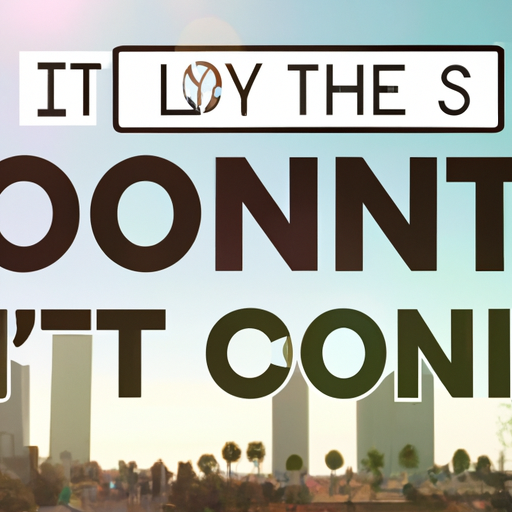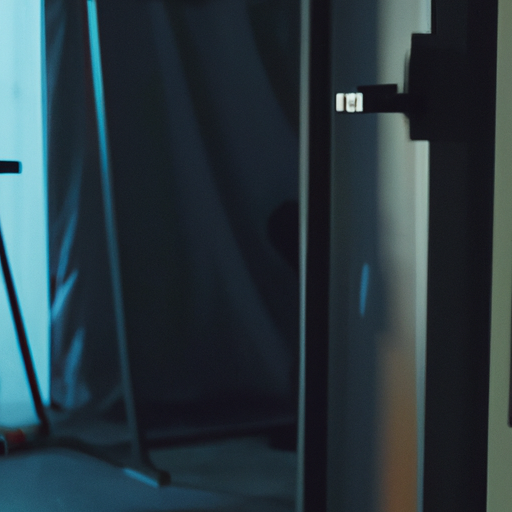
The Importance of Personal Accountability in Achieving Success
Taking Responsibility: Rejecting “It’s Out of My Control” as an Invalid Excuse
Personal accountability is a crucial aspect of achieving success in any area of life. It involves taking ownership of our actions, decisions, and their consequences. Unfortunately, many people tend to shy away from this responsibility, often resorting to the excuse, “It’s out of my control.” However, it is essential to recognize that this excuse is invalid and can hinder personal growth and progress.
One of the primary reasons why personal accountability is so important is that it empowers individuals to take control of their lives. When we accept responsibility for our actions, we acknowledge that we have the power to make choices and influence outcomes. This mindset shift is crucial because it allows us to move away from a victim mentality and towards a proactive and empowered mindset.
Moreover, personal accountability fosters a sense of self-reliance and independence. By recognizing that we are responsible for our own success or failure, we become less reliant on external factors or other people to determine our outcomes. This self-reliance is liberating and allows us to take charge of our lives, rather than being at the mercy of circumstances.
Another significant benefit of personal accountability is that it promotes personal growth and development. When we take responsibility for our actions, we are more likely to reflect on our mistakes and learn from them. This self-reflection enables us to identify areas for improvement and make necessary changes to achieve better results in the future. Without personal accountability, we may be inclined to blame external factors for our failures, which hinders our ability to learn and grow.
Furthermore, personal accountability strengthens relationships and fosters trust. When we take responsibility for our actions, we demonstrate integrity and reliability. Others perceive us as trustworthy individuals who can be relied upon to fulfill our commitments. This trust is essential in both personal and professional relationships, as it forms the foundation for effective collaboration and cooperation.
It is important to note that personal accountability does not mean that we are solely responsible for every outcome in our lives. There are undoubtedly external factors that can influence our circumstances. However, personal accountability lies in our response to these external factors. Instead of blaming them for our failures, we can choose to take responsibility for how we react and adapt to these challenges.
Rejecting the excuse of “It’s out of my control” requires a shift in mindset. It requires us to recognize that we have agency and influence over our lives, even in the face of adversity. This shift in mindset may not be easy, as it requires us to confront our fears and insecurities. However, the rewards of personal accountability far outweigh the temporary comfort of placing blame on external factors.
In conclusion, personal accountability is a vital aspect of achieving success in any area of life. It empowers individuals to take control of their lives, fosters self-reliance and independence, promotes personal growth, and strengthens relationships. Rejecting the excuse of “It’s out of my control” is essential for personal growth and progress. By embracing personal accountability, we can unlock our full potential and create the life we desire. So, let us take responsibility for our actions, decisions, and their consequences, and reject the notion that our lives are out of our control.
Overcoming the Victim Mentality: Embracing Responsibility for Personal Growth

Taking Responsibility: Rejecting “It’s Out of My Control” as an Invalid Excuse
In life, we often encounter situations that challenge us and push us outside of our comfort zones. It is during these times that we have a choice to make – to take responsibility for our actions and outcomes or to adopt a victim mentality and blame external factors for our failures. Embracing responsibility for personal growth is a powerful mindset that can lead to positive change and a more fulfilling life.
One common excuse that people often use to avoid taking responsibility is the phrase, “It’s out of my control.” This mindset suggests that we have no power or influence over the circumstances that surround us. However, this belief is flawed and limits our potential for growth and success.
When we reject the notion that things are out of our control, we open ourselves up to the possibility of change. Instead of feeling helpless, we can take proactive steps to improve our situation. This shift in mindset empowers us to seek solutions, make better choices, and ultimately take control of our lives.
It is important to recognize that while we may not have control over every aspect of our lives, we do have control over how we respond to challenges. By accepting responsibility for our actions and decisions, we can learn from our mistakes and grow as individuals. This self-reflection allows us to identify areas for improvement and take the necessary steps to make positive changes.
Taking responsibility also means acknowledging that we have the power to shape our own future. Instead of waiting for things to happen, we can actively work towards our goals and dreams. This proactive approach not only increases our chances of success but also instills a sense of purpose and fulfillment in our lives.
Another benefit of embracing responsibility is the impact it has on our relationships. When we take ownership of our actions, we become more reliable and trustworthy individuals. We no longer rely on excuses or blame others for our shortcomings. Instead, we strive to be accountable for our words and actions, fostering healthier and more meaningful connections with those around us.
It is important to note that embracing responsibility does not mean that we will never face setbacks or challenges. Life is unpredictable, and there will always be circumstances beyond our control. However, by taking responsibility, we can approach these obstacles with a positive mindset and a determination to overcome them.
To overcome the victim mentality and embrace responsibility, it is essential to develop self-awareness. This involves recognizing our patterns of behavior, understanding our strengths and weaknesses, and taking ownership of our choices. Self-awareness allows us to make conscious decisions and take control of our lives.
In conclusion, rejecting the excuse of “It’s out of my control” is crucial for personal growth and development. By embracing responsibility, we empower ourselves to make positive changes, take control of our lives, and build stronger relationships. It is through this mindset shift that we can overcome the victim mentality and create a more fulfilling and successful life. So, let us take responsibility and embrace the power we have to shape our own destiny.
Empowering Yourself through Taking Responsibility: Steps to Transform Your Life
Taking Responsibility: Rejecting “It’s Out of My Control” as an Invalid Excuse
Have you ever found yourself using the phrase “it’s out of my control” as an excuse for not taking responsibility for your actions or the outcomes in your life? It’s a common phrase that many of us use when faced with challenges or difficult situations. However, it’s important to recognize that this mindset can be detrimental to our personal growth and overall happiness. By rejecting the notion that things are out of our control, we can empower ourselves to take charge of our lives and transform them for the better.
One of the first steps in taking responsibility is acknowledging that we have the power to influence the outcomes in our lives. While it’s true that there are certain things beyond our control, such as natural disasters or other people’s actions, there are still many aspects of our lives that we can take charge of. By recognizing this, we can shift our mindset from one of helplessness to one of empowerment.
Another important aspect of taking responsibility is understanding that we have a choice in how we respond to the challenges we face. It’s easy to fall into the trap of blaming external factors for our problems, but this only perpetuates a victim mentality. Instead, we can choose to take ownership of our actions and decisions, and actively seek solutions to the problems we encounter. This shift in mindset allows us to approach challenges with a problem-solving attitude, rather than feeling defeated before we even begin.
Taking responsibility also means being accountable for our mistakes and learning from them. It’s natural to make errors and experience setbacks along the way, but it’s how we handle these situations that truly defines our character. By accepting responsibility for our mistakes, we can grow and improve ourselves. This also allows us to build trust and credibility with others, as they see that we are willing to own up to our actions and make amends when necessary.
In addition to personal growth, taking responsibility can also have a positive impact on our relationships. When we take ownership of our actions, we become more reliable and trustworthy individuals. This fosters healthier and more meaningful connections with others, as they know they can count on us to follow through on our commitments. By rejecting the excuse of “it’s out of my control,” we can build stronger relationships based on mutual respect and accountability.
Finally, taking responsibility allows us to live a more fulfilling and purposeful life. When we recognize that we have the power to shape our own destiny, we become active participants in our own lives. We no longer feel like passive bystanders, but rather, creators of our own reality. This sense of agency and control can lead to increased motivation, productivity, and overall satisfaction with life.
In conclusion, rejecting the excuse of “it’s out of my control” is essential for personal growth and empowerment. By taking responsibility for our actions, choices, and outcomes, we can transform our lives for the better. It’s important to remember that while there are certain things beyond our control, there is still much that we can influence. By adopting a mindset of responsibility, we can become active participants in our own lives and create a future that aligns with our values and aspirations. So, let’s reject the notion of helplessness and embrace the power we have to shape our own destinies.


